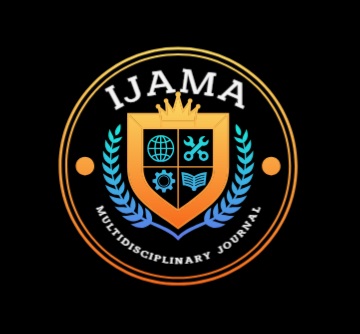International Journal of Advanced Multidisciplinary Application (IJAMA)

Author Benefits
Abstract
Ethical awareness is a critical component of social sciences education, fostering responsible decision-making and moral reasoning among students. Experiential learning—through simulations, role-playing, service learning, and community engagement—provides an effective pedagogical approach to embed ethical understanding in real-world contexts. This paper explores strategies to promote ethical awareness in social sciences curricula, examines the impact of experiential learning methods on student engagement and moral development, and discusses challenges and best practices. Case studies and literature insights highlight the transformative potential of active, participatory learning in developing ethical competencies for future social scientists.
Keywords
Ethical Awareness, Experiential Learning, Social Sciences Education, Moral Development, Service Learning, Role-Playing, Active Learning
References
[1] D. A. Kolb, Experiential Learning: Experience as the Source of Learning and Development, 2nd ed., Pearson, 2015.
[2] D. Boud, R. Cohen, and D. Walker, Using Experience for Learning, Open University Press, 1993.
[3] S. G. Jones and M. W. Abes, “Experiential learning in social sciences: Case studies and reflections,” J. College Student Dev., vol. 56, no. 5, pp. 480–495, Sep.–Oct. 2015.
[4] R. Eyler, Where’s the Learning in Service-Learning?, Jossey-Bass, 2002.
[5] C. C. Austin and L. E. Johnson, “Role-playing exercises for teaching ethics in social sciences,” Teach. Soc., vol. 41, no. 3, pp. 185–195, Jul. 2013.
[6] K. Kolb and L. Kolb, “The experiential educator: Principles and practices of experiential learning,” Exp. Learn. Org., vol. 10, no. 2, pp. 1–20, 2010.
[7] R. P. Kraft, “Simulations and case studies in social sciences ethics education,” J. Ethics Educ., vol. 15, no. 2, pp. 123–137, 2018.
[8] S. N. Patil and A. R. Deshpande, “Service learning for ethical development in undergraduate students,” Int. J. Soc. Sci. Educ., vol. 12, no. 4, pp. 55–68, 2019.
[9] D. T. Kolb, Experiential Learning: Experience as the Source of Learning and Development, 1st ed., Prentice Hall, 1984.
[10] J. C. McCarthy, “Enhancing ethical reasoning through experiential exercises in social sciences,” Innov. High. Educ., vol. 43, no. 1, pp. 35–49, Feb. 2018.
[11] R. L. Sharp, “Critical reflections on ethical awareness in higher education,” Ethics Educ., vol. 10, no. 3, pp. 241–257, 2015.
[12] K. Giles and R. Eyler, “The impact of service-learning on college students’ moral development,” Teach. Sociol., vol. 25, no. 1, pp. 69–83, Jan. 1997.
[13] M. Kolb and D. Kolb, “Experiential learning theory: A dynamic, holistic approach to management learning, education and development,” Acad. Manage. Learn. Educ., vol. 4, no. 2, pp. 193–212, Jun. 2005.
[14] P. A. Freire, Pedagogy of the Oppressed, 30th Anniversary ed., Continuum, 2000.
[15] R. A. Kraft and S. B. Tuck, “Role-play, reflection, and ethical awareness in undergraduate education,” J. Ethics Soc. Sci., vol. 9, no. 2, pp. 112–128, 2020.
[16] A. Kolb, “Experiential approaches to ethics education in higher education,” High. Educ. Rev., vol. 52, no. 1, pp. 101–118, 2019.
[17] L. K. Myers and J. R. Lee, “Simulations as tools for ethical reasoning in social sciences,” Int. J. Teach. Soc. Sci., vol. 7, no. 3, pp. 45–61, 2020.
[18] R. Eyler and J. Giles, Where’s the Learning in Service-Learning?, Jossey-Bass, 1999.
Contacts
editorinchief.ijama@gmail.com
Working days : Mon- Saturday
Working Hours :9 am -5:30 Pm


